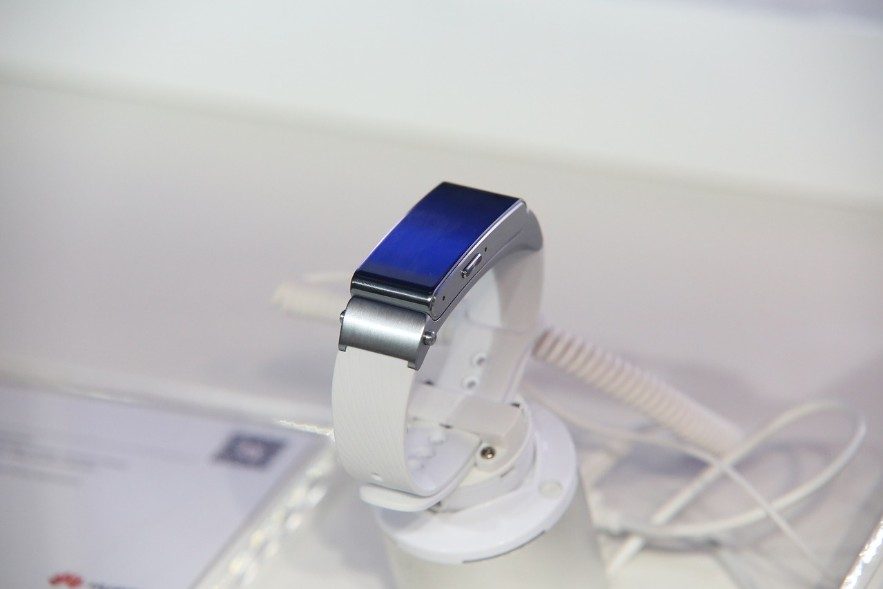Two digital health projects that are breakthroughs in detecting diseases receive grants from the UOC's eHealth Center
Smart stroke monitoring and ProteoMarker will receive grants for digital health projects awarded to students undertaking master's degree final projects and graduates from the UOC's Faculty of Health Sciences and Faculty of Computer Science, Multimedia and Telecommunications
Two student projects that represent breakthroughs in detecting diseases thanks to technology have received grants from the UOC's eHealth Center. This is the third round of €3,000 grants awarded to students and graduates from the UOC's Faculty of Health Sciences and Faculty of Computer Science, Multimedia and Telecommunications for master's degree final projects in the field of digital health. The projects were presented at the eHealth Project: From Idea to Project symposium. The grants are for students on the Joint University Master's Degree in Bioinformatics and Biostatistics (UOC, UB) and the University Master's Degree in Data Science who are doing or have done a final project on digital health and want to put it into practice.
Smart stroke monitoring: smartwatches to prevent silent strokes
The first of the winning projects was Smart stroke monitoring, led by Jorge Pagola, a neurologist at Barcelona's Vall d'Hebron Hospital. Pagola's project, which aims to prevent the recurrence of cryptogenic strokes by detecting arrhythmias using smartwatches, arose from the need for a reliable cardiac monitoring solution that is affordable and comfortable for patients. "The development of smartwatches in recent years, together with people's growing technological empowerment, encouraged us to undertake the project," explained Dr Pagola.
The cause of cryptogenic strokes is difficult to determine, which is why Pagola's project is a breakthrough in their detection. "The primary cause is undetected fibrillation, which people do not notice or which is often detected too late, once it has already led to an embolism," explained Pagola. The project, which has received funding from the UOC's eHealth Center, aims to validate the use of smartwatches by checking whether an arrhythmia is in fact happening when the watch says it is. It also checks whether any arrhythmias happen without the watch detecting them. Another aim of the project is to determine the impact and importance of using the watch for a year. It aims to measure how many arrhythmias are detected and how many strokes are prevented, and ascertain whether using a watch or not leads to changes in the treatment.
Pagola's project is the subject of an article published recently in Sensors: "Accuracy of a smartwatch to assess heart rate monitoring and atrial fibrillation in stroke patients". It analyses the limitations of smartwatches for monitoring pulse rates and detecting arrhythmias. They expect to have conclusive data by 2025. The article highlights the role of the UOC's eHealth Center as the body funding the project.
In addition, Irina Pérez Coloma, a student on the UOC Master's Degree in E-Health, is preparing a final project, under Pagola's and Antoni Baena supervision, which aims to make this technology more accessible to patients, thanks to the design of an expert patient programme and the development of an application that will connect the watch to the hospital's netwo
ProteoMarker: a web app to make clinical researchers' work easier
The second project to receive a grant was ProteoMarker, an instrument developed by Patricia Martínez Botía, whose specialist field is proteomics. This project is based on the importance of bioinformatics and biostatistics in understanding the biology behind experimental or healthcare data, and facilitates the determination of biomarkers. Only a minority of the 20,000 diseases that affect human beings have reliable biomarker panels. ProteoMarker is a tool that consists of a web app that allows the user to analyse proteomic marking or TMT data, and obtain a panel of potential biomarkers from them. Martínez Botía explained that as a result, "the person using the tool does not need to have any knowledge of biostatistics, as the app to a certain extent guides the analysis and does all the statistical work behind the scenes."
The ultimate aim of the project is to ensure researchers – mainly clinicians – don't have to spend months or years analysing data when using proteomics to seek biomarkers for specific diseases with large cohorts of patients. "It speeds up the process of research and discovery, without sacrificing any thoroughness," said Martínez Botía. The web app is currently in the functional phase, but the efficiency of some analyses needs to increase, and several rounds of testing are necessary to identify possible errors.
